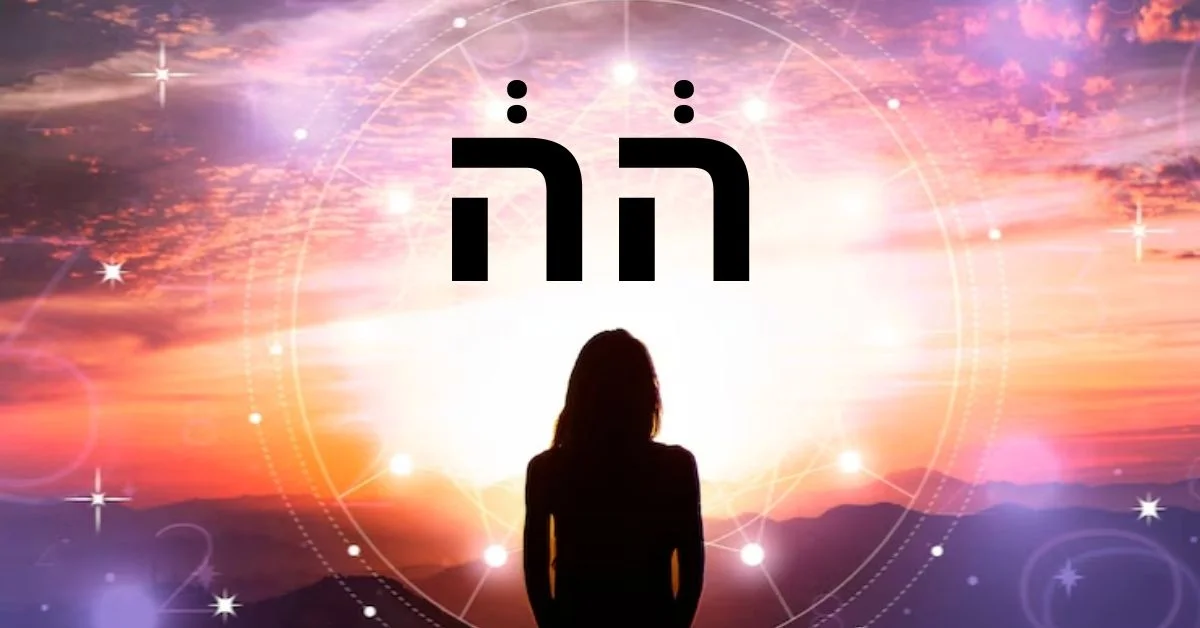Have you ever pondered the reason for the discrepancy in the titles given to the Creator in different Bible translations? Common names include “God,” “Jehovah,” and “Yahweh,” but what if the sacred original name is “Yahuah”?
This essay will go into the spiritual significance of the name Yahuah, its origins, and why it is becoming popular among those seeking the truth. By learning this name, you will be able to enrich your own spiritual journey.
What Does “Yahuah” Mean?
The Most High, who created the universe and everything in it, was originally known as “Yahuah” (pronounced Yah-oo-ah) according to several researchers and seekers of truth. The word is a derivative of the Tetragrammaton YHWH (֙֔ה֔), a word that is found more than 6,800 times in Jewish scriptures.
Key Interpretations of Yahuah:
- “He who breathes life”
- “The self-existing One”
- “Eternal, unchanging, ever-present”
This name carries profound meaning, far beyond a simple label. It reflects the nature, essence, and eternal power of the Creator.
The Origins of the Name Yahuah
Names in Hebrew had great significance in the past. Linguists have been able to follow the name Yahuaah back to early Paleo-Hebrew, which shows that it was consistently used even before the translation attempts of the Greeks and Latins.
Timeline of the Name’s Suppression
Here’s a breakdown of how the sacred name was replaced over time:
| Time Period | Action Taken | Result |
|---|---|---|
| Pre-6th Century BCE | Usage of YHWH in Hebrew texts | Name Yahuah used openly in Scripture |
| Post-Babylonian Exile | Religious leaders prohibit vocal use of YHWH | Name replaced with Adonai (“Lord”) |
| Septuagint Era (~250 BCE) | Greek translation begins to mask sacred name | YHWH becomes Kyrios (“Lord” in Greek) |
| Latin Vulgate (~382 AD) | Further translation to Dominus | Loss of original name in mainstream Bibles |
Yahuah vs. Jehovah vs. Yahweh
Many people ask: “Isn’t Jehovah or Yahweh the same as Yahuah?”
Let’s clear that up.
- Jehovah: A 16th-century construct from mixing the vowels of “Adonai” with YHWH. Linguistically inaccurate.
- Yahweh: Closer, but still debated among scholars.
- Yahuah: Based on Paleo-Hebrew pronunciation patterns and aligned with Hebrew theophoric names like YirmeYahu (Jeremiah) and YeshaYahu (Isaiah).
Long-tail variation example: “The truth behind the name Yahuaah vs Jehovah.”
Why the Name Matters: Faith and Identity
The name Yahuah isn’t just a theological preference—it’s an identity.
Calling on His true name:
- Deepens personal connection
- Reflects reverence for truth
- Honors ancient Scriptural integrity
Many believers feel spiritually transformed when they start using “Yahuaah” in prayer and worship.

Restoring the Sacred Name in Worship
A growing movement seeks to restore the original name in music, study, and prayer.
Ways to honor Yahuah’s name:
- Read Scriptures using versions that restore the name (e.g., The HalleluYah Scriptures)
- Replace “Lord” with Yahuaah during Bible reading
- Incorporate His name in daily prayer
Yahuah in Scripture: A Look at the Evidence
“That men may know that thou, whose name alone is YAHUAH, art the most high over all the earth.” is one of several verses that emphasise the significance of calling on the holy name. – The restored name version of Psalm 83:18
Other examples include:
- Exodus 3:15 – “This is My name forever…”
- Isaiah 42:8 – “I am Yahuaah, that is My name…”
These verses remind us that names carry divine power and purpose.
Conclusion
Truth, identity, and spiritual clarity are at the heart of the movement to restore the name Yahuah, not religion. Reverting back to His original name brings your life into harmony with the original meaning and words of the Bible.
Open your Bible, read with restored names, and establish a stronger connection with the Most High. Take a step ahead.
FAQs
1. Is “Yahuah” a new name or an ancient one?
It’s an ancient name, derived directly from the Hebrew Tetragrammaton YHWH, used thousands of years ago in Scripture.
2. Why is “Lord” used instead of Yahuaah in modern Bibles?
After the Babylonian exile, vocalizing the name became taboo. Over time, translators replaced YHWH with titles like “Lord” or “God.”
3. How is Yahuah pronounced?
Most scholars and language experts pronounce it “Yah-oo-ah,” preserving the Hebrew root and suffix patterns.
4. Is there any evidence for using the name Yahuah today?
Yes. Thousands of manuscripts, linguistic studies, and name etymologies support its restoration. Plus, many modern believers report a deeper spiritual connection using it.
5. Can I use the name Yahuaah in my prayers and worship?
Absolutely. Many believe this honors the Creator’s true identity and fosters a more intimate relationship with Him.
For more information, click here.









